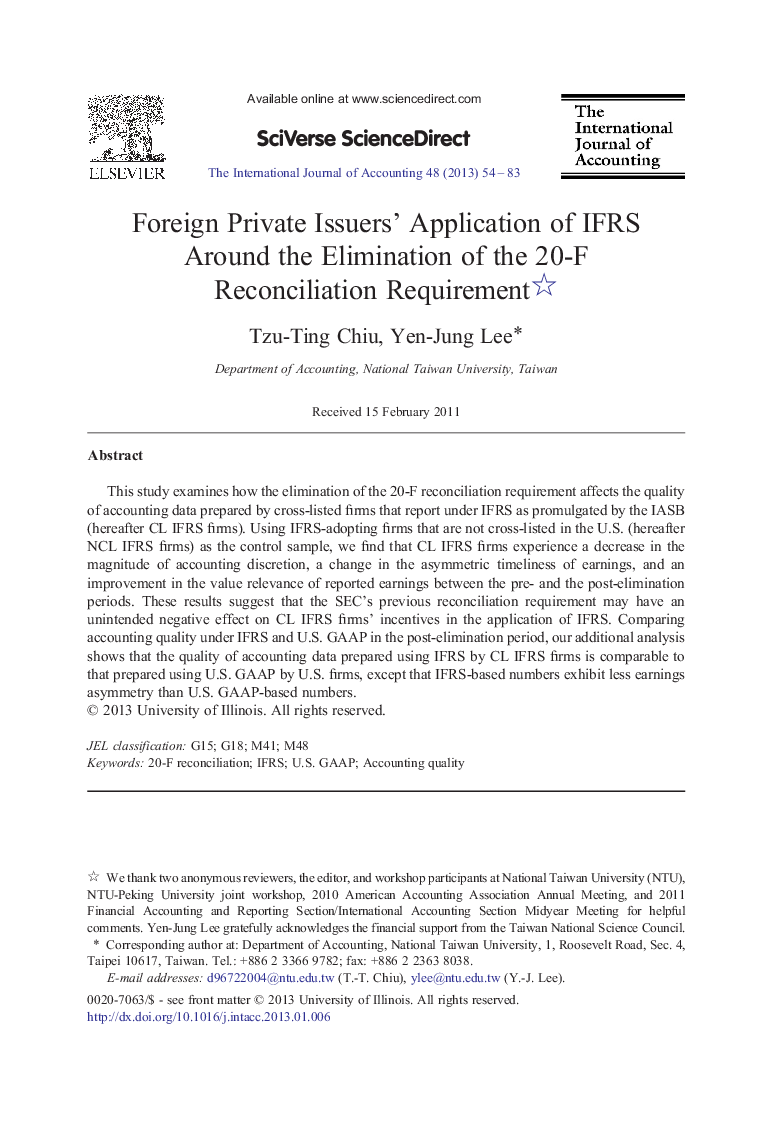| Article ID | Journal | Published Year | Pages | File Type |
|---|---|---|---|---|
| 1004939 | The International Journal of Accounting | 2013 | 30 Pages |
This study examines how the elimination of the 20-F reconciliation requirement affects the quality of accounting data prepared by cross-listed firms that report under IFRS as promulgated by the IASB (hereafter CL IFRS firms). Using IFRS-adopting firms that are not cross-listed in the U.S. (hereafter NCL IFRS firms) as the control sample, we find that CL IFRS firms experience a decrease in the magnitude of accounting discretion, a change in the asymmetric timeliness of earnings, and an improvement in the value relevance of reported earnings between the pre- and the post-elimination periods. These results suggest that the SEC's previous reconciliation requirement may have an unintended negative effect on CL IFRS firms' incentives in the application of IFRS. Comparing accounting quality under IFRS and U.S. GAAP in the post-elimination period, our additional analysis shows that the quality of accounting data prepared using IFRS by CL IFRS firms is comparable to that prepared using U.S. GAAP by U.S. firms, except that IFRS-based numbers exhibit less earnings asymmetry than U.S. GAAP-based numbers.
